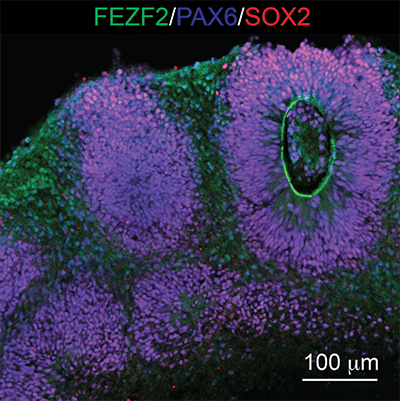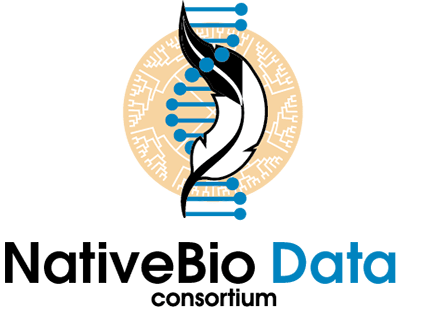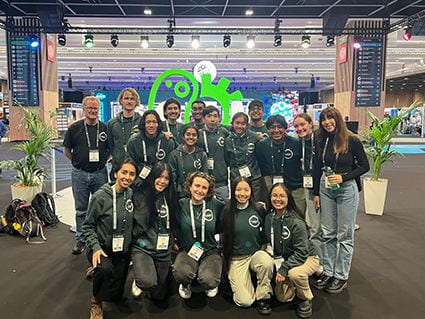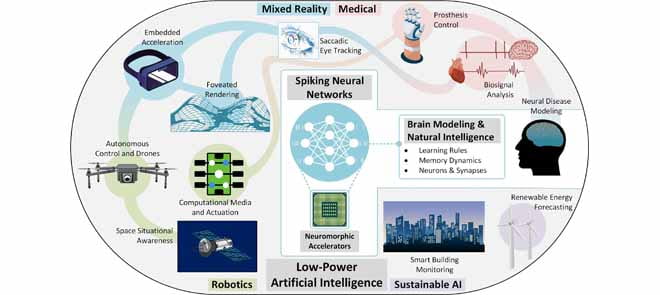Category: News
-

Beth Shapiro and the Hunt for the Oldest DNA
DNA can tell us much more about extinct species than their fossil records alone, but because of how quickly DNA degrades, there have been limits on how far back in time researchers can go. UCSC professor Beth Shapiro and her colleagues are pushing those limits. Watch on PBS | NOVA.
-

Protein designer awarded $2.5M to develop bioluminescent protein for deep tissue imaging
Assistant Professor of Biomolecular Engineering Andy Yeh, who was awarded a nearly $2.5 million grant from the Chan Zuckerberg Initiative to develop completely artificial enzymes that can produce bioluminescence in the body for deep tissue imaging.
-

PBS’s ‘Easter Island Origins’ explores surprising genetic research to help tell the story of the Rapa Nui people
Rapa Nui, also known as Easter Island, is famous for its moʻai, giant human-like figures carved out of stone that can weigh more than 80 tons. It is an island with a rich history that has been communicated over the generations through oral histories and hundreds of archeological sites, and now UC Santa Cruz Assistant…
-

Bioelectronics enable precise control on organoids for better understanding of neuro diseases, neuron circuits
An experimental setup with the plug-and-play bioelectronics system on top of a cell culture plate. February 07, 2024 By Emily Cerf Cortical organoids, which are miniature three-dimensional models of brain tissue grown from stem cells, offer scientists a sophisticated and accurate model to better understand how neurons control brain functioning — but researchers are still developing…
-

Insights from UCSC-made COVID-19 tracking tool will guide the future of studying pathogens in real time
UShER, a software developed at UC Santa Cruz to map the genomic evolution of the SARS-CoV-2 virus, is the most widely used tool for tracking COVID-19 worldwide. A new paper from the tool’s creators outlines the “game-time” decisions that the programmers made to keep up with an evolutionary tree of millions of genomic sequences, offering…
-

UCSC joins as founding member of new Action Collaborative to improve pathways for women of color in tech education and careers
Genomics Institute affiliate Sri Kurniawan, Professor of Computational Media at the Baskin School of Engineering, is serving as UCSC’s senior faculty lead for this effort. As a founding member of the Action Collaborative, UCSC has already committed to four years of membership.
-

The genes that made us truly human may also make us ill
The changes in our genes since our ancestors and apes evolved from a common ancestor helped us develop bigger brains and upright walking. But did they also have a downside?
-

Cloud technologies bring organoids into undergraduate classrooms for the first time
Cortical organoids — miniature models of brain tissue grown from stem cells — are becoming increasingly relevant in biotechnology for their usefulness in drug discovery, the study of infectious disease, and more. But the tiny organ models are very tricky to grow and maintain in the lab, meaning many students majoring in biotech-related fields enter…
-

Indigenous scientists awarded $9M to establish the first RADx Tribal data repository that upholds Indigenous data sovereignty
Today, the National Institutes of Health (NIH) announced $9 million in funding for an Indigenous Data Repository led by Native scientists to help improve health in tribal communities and for all Indigenous Peoples. UCSC Genomics Institute Assistant Researcher Ann Mc Cartney will work alongside the Indigenous leaders on this project.
-

UCSC’s 2023 iGEM team grabs fourth consecutive gold medal and nomination for best software tool at international competition
A team of UC Santa Cruz students won a gold medal at the 2023 International Genetically Engineered Machine (iGEM) Grand Jamboree, marking their fourth consecutive year of bringing home the prize, and were nominated as best software tool for the first time. The annual iGEM competition brings together student teams from around the world to…
-

New eDNA Explorer provides a powerful new resource for conservation
CALeDNA, a UC-wide consortium project to document California’s biodiversity, has launched a prototype of their new eDNA Explorer. This open-source tool provides a powerful and easily accessible platform for sharing, exploring, and analyzing data from projects that use environmental DNA.
-

Brain-inspired AI code library passes major milestone, new paper offers perspective on future of field
Four years ago, UC Santa Cruz’s Jason Eshraghian developed a Python library that combines neuroscience with artificial intelligence to create spiking neural networks, a machine learning method that takes inspiration from the brain’s ability to efficiently process data.